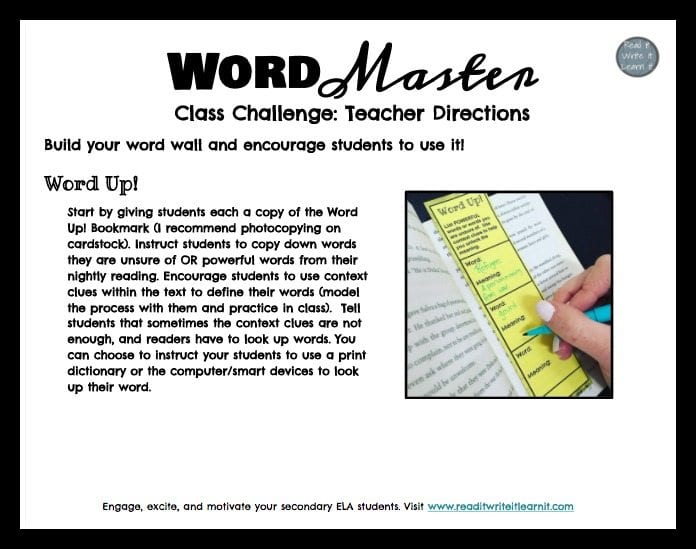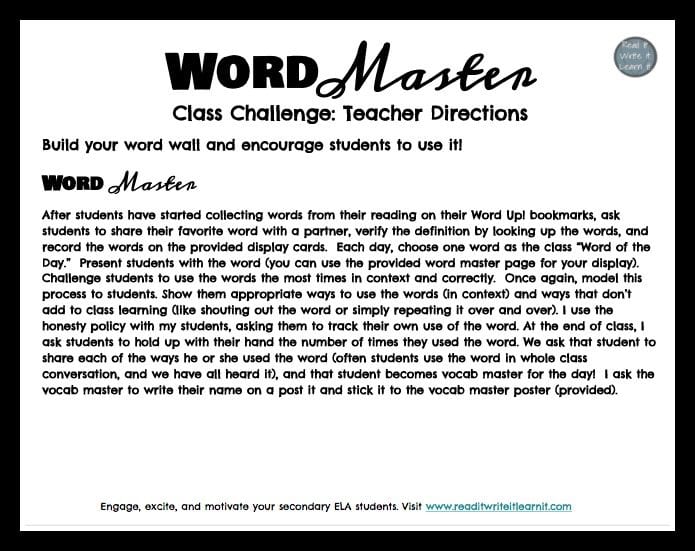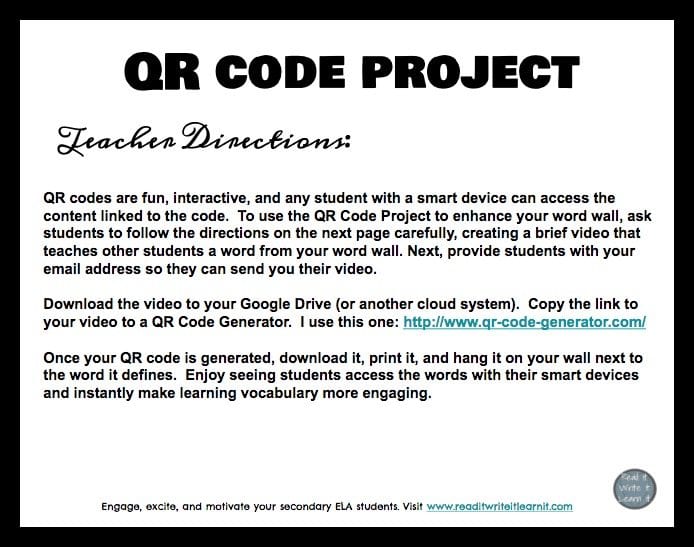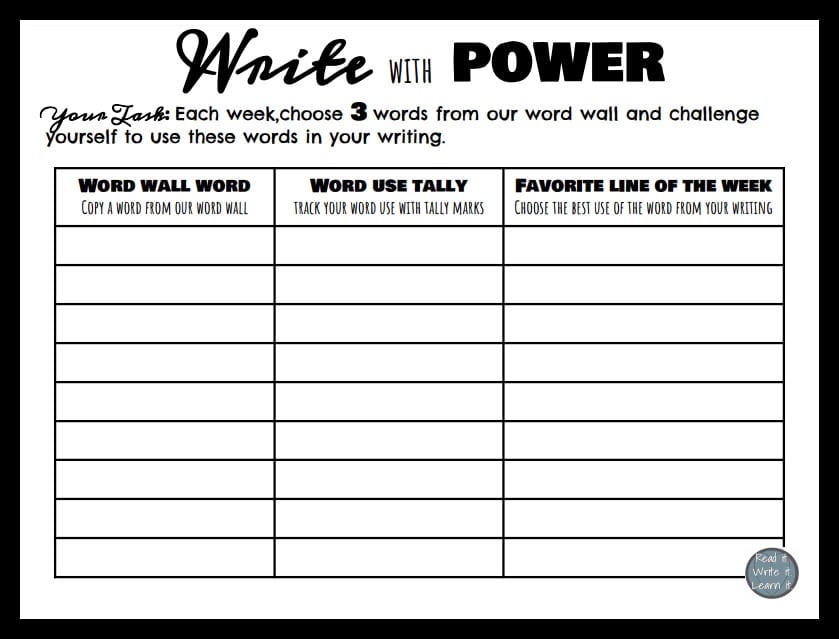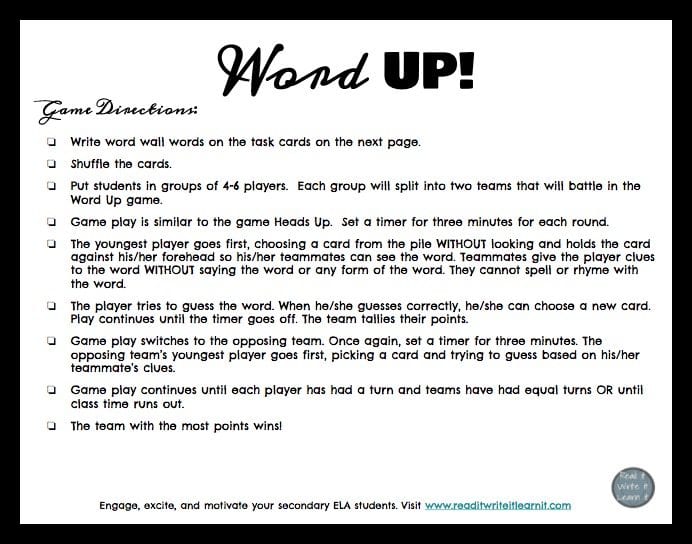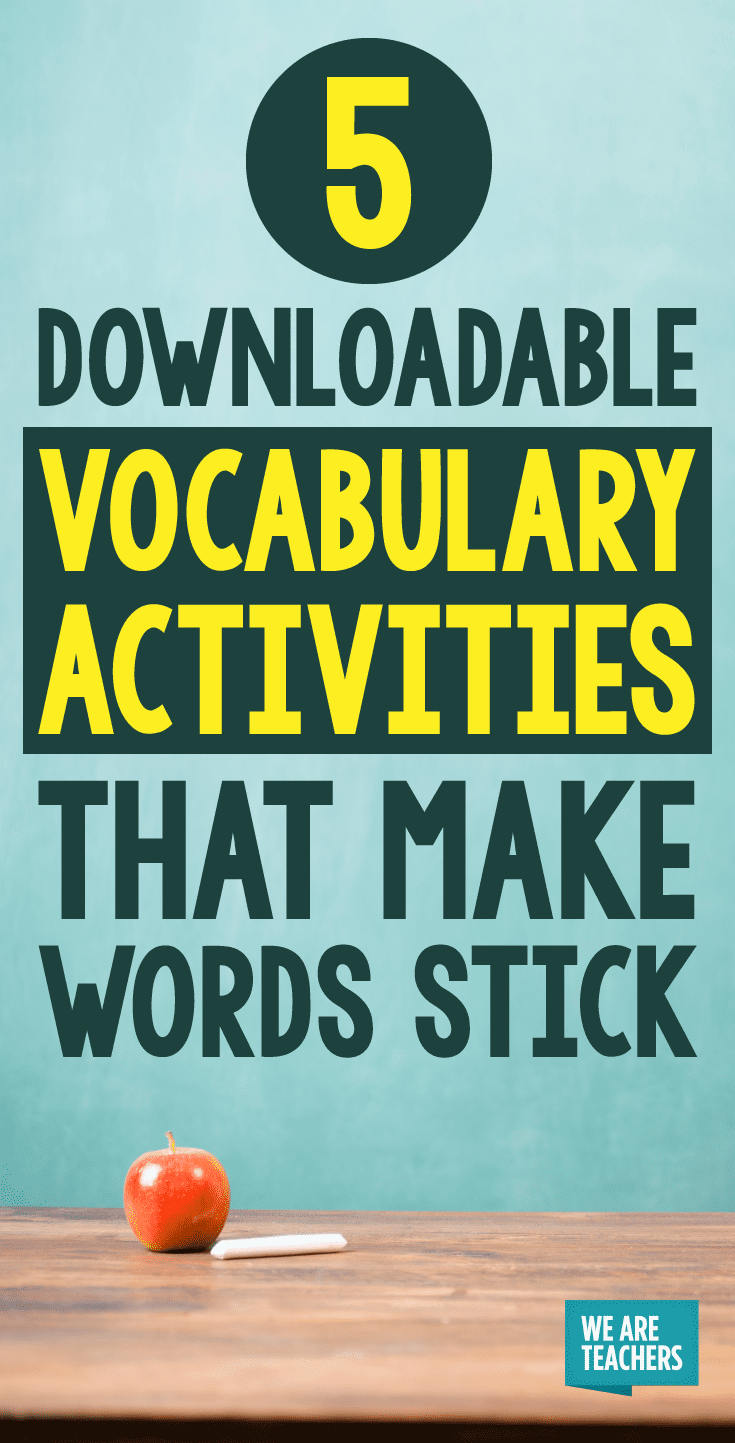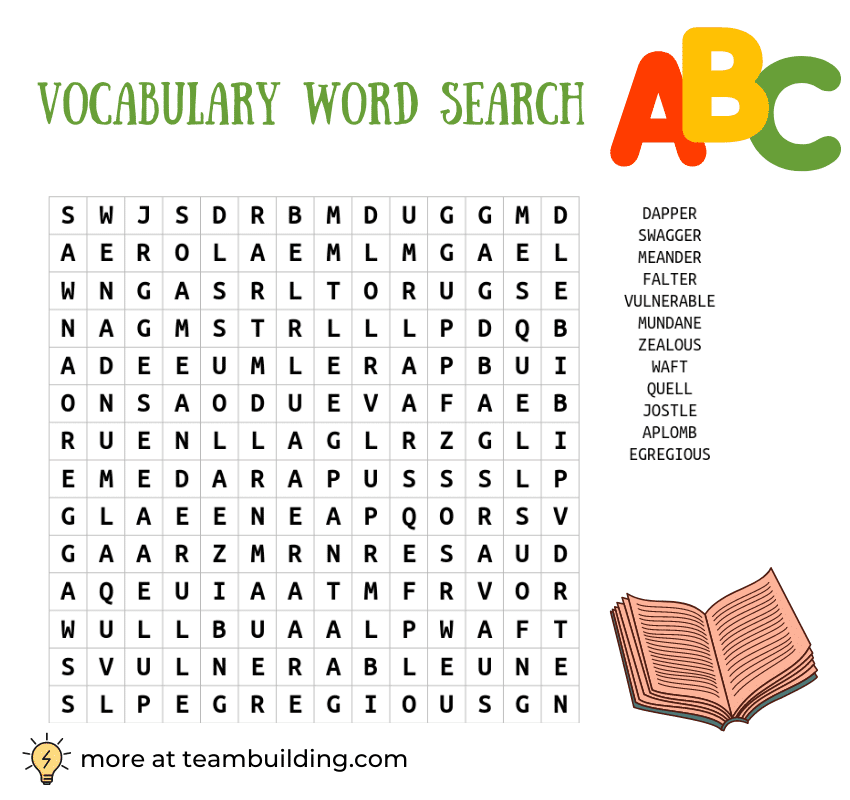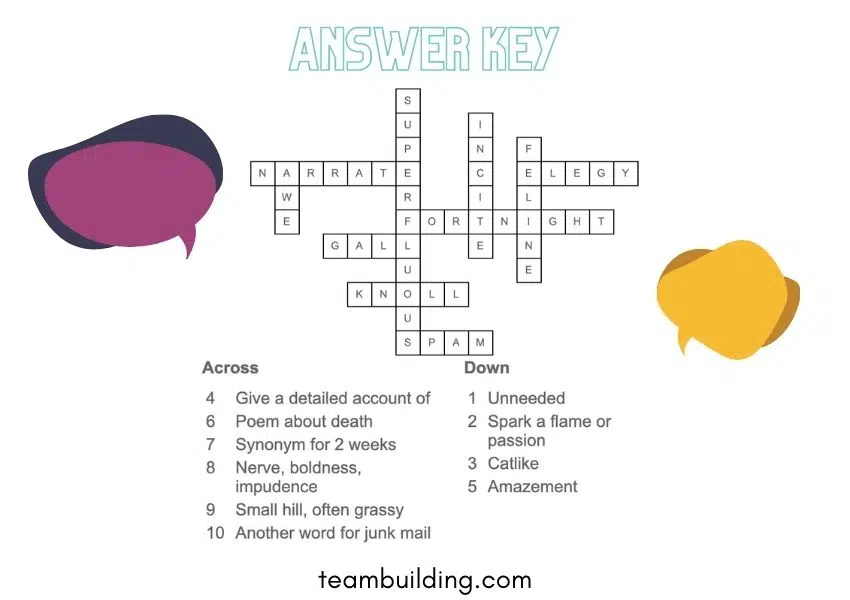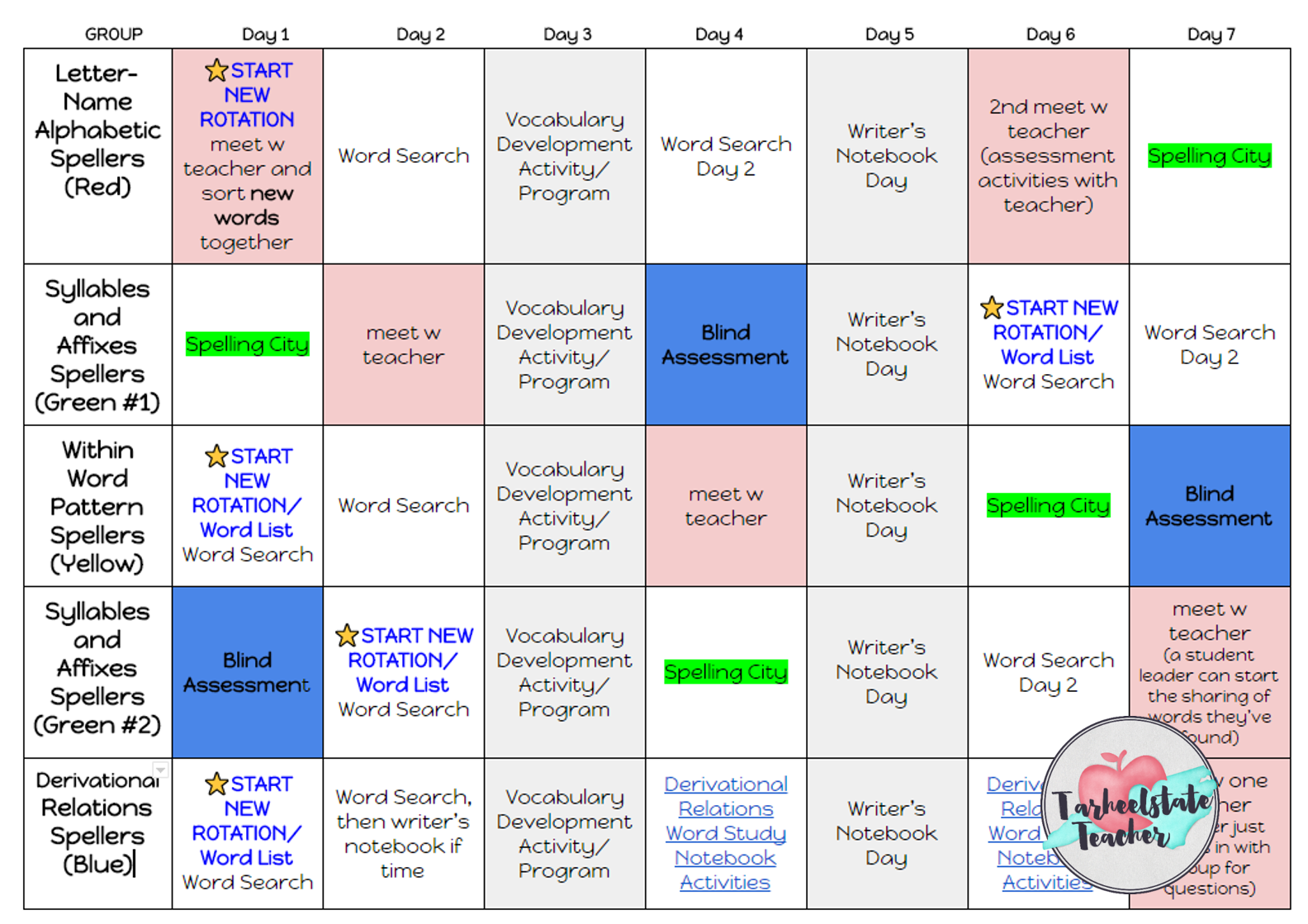I’m back from a two-day conference in Oklahoma where I got to meet and talk to so many amazing Kindergarten and 1st grade teachers. It was definitely a busy two days, but so much fun!! I absolutely love working with teachers!!!
One of the sessions I presented was all about vocabulary. I’m such a huge believer in intentional and explicit vocabulary instruction that not only focuses on academic vocabulary words, but Tier 2 vocabulary words, too. It’s so important for us as teachers to provide our kids with instruction that targets vocabulary retention. Not only do we want our kids to know what words mean, but we want them to be able to apply what they learn as well. Did you know that research suggests our kids need between 6-12 exposures to a word for it to become part of their working vocabulary?! Fascinating!!!
There are a couple of ways that I like to reinforce vocabulary in my classroom, so let’s chat about that today. These are really SIMPLE activities that can be used with pretty much ANY word you’re studying.
First let’s talk about music. Research has proven that are brains are hard-wired to connect music with long term memory. It just makes sense to incorporate music into our learning! I love to make up songs…ridiculously SIMPLE songs that don’t require any creativity whatsoever. You do not have to be Mozart to come up with your own tunes. When reinforcing vocabulary words, I like to take the definition of the word and sing it to a familiar tune. Here’s an example of a song I made up when we were studying winter animals. One of our vocabulary words was “burrow”. I just incorporated the definition into the song and BAM!!! A masterpiece…only notsomuch.
You can use any word & definition with any familiar tune to create a catchy song that will not only enhance learning,but create a lasting memory, too. Don’t like making up songs?! That’s okay! Release the control and let your kids make them up!!! DIvide your kids into small collaborative groups and give each group a vocabulary word & definition. They can collaborate on everything from the tune to the lyrics and everything in between, What a great way to target those kids who learn best when they have the autonomy to be creative!
Now let’s switch gears for a second. Instead of reinforcing and assessing vocabulary knowledge in a paper/pencil format, engage your kids with a hands-on activity that they are sure to love! I know mine sure did!! This activity is great for both small and whole group and it can be done as a transitional activity or part of something bigger. It’s great for reinforcement and assessment. I think sometimes we feel like ALL assessment has to be paper/pencil based, but it SO does NOT!!! It can be done aloud and various settings. Need documentation?! Just take notes…or a video!
For this activity, place your vocabulary words in one container/bag and the prompts in another bag/container. Call on one student to reach into the bags/containers and remove a vocabulary word and a prompt. The student has to do what the prompt suggests using the vocabulary word they removed from the container. Simple and easy. Great way to reinforce learning and perfect for a quick assessment. Always a class favorite and SO easy to incorporate into instruction!!!
Simplify Your Teaching
Join our community for tips, tricks, and resources to help you simplify your teaching!
Reader Interactions
The best way to teach vocabulary is to get our students to use vocabulary. These five free downloadable vocabulary activities from Read it. Write it. Learn it. will help your students master their vocab list in no time!
1. Allow students to choose their own vocabulary words with Word Up! Bookmarks.
The best vocabulary words are chosen by students. Start by giving each student a copy of the Word Up! bookmark (I recommend photocopying on cardstock). Instruct students to copy down words they are unsure of or powerful words from their nightly reading. Encourage students to use context clues within the text to define their words. Model the process with them and practice in class. If students cannot unlock the meaning of words using the context clues, show them how to use print and online dictionaries for help.
2. Set up a Word-Master Class Challenge.
Once students start collecting vocabulary words, encourage them to use the words in their speech and writing. Use this downloadable to create a word wall and choose a word of the day. Then, enjoy the vocabulary magic that follows! The student who uses the word of the day most often during a class period wins the prestigious title of Word Master.
3. Teach definitions with a QR code project.
QR codes are fun and interactive, and any student with a smart device can access the content linked to the code. Use this downloadable to guide your students through the process of creating student videos that define word-wall words. Students will then email you their videos, and you can use the provided link to create a printable QR code to add to your word wall. Students simply scan the code to view the video definition of each word on your wall.
4. Encourage students to use powerful vocabulary in their writing.
Give students this printable chart to help them apply vocabulary from your word wall into their own writing. Students simply choose three words per week, challenge themselves to use the word in the proper context as often as they can, and then share their favorite line in the last column of the chart.
To extend this activity even further and deepen students’ understanding of the words, ask students to complete the Words With Power one-pager included in this download. This activity will allow students to share favorite lines from their personal writing, displaying the line along with the literal definition, figurative and connotative meanings, and visual representations of the word.
5. Play the Word Up! Game.
Engage students in learning their vocabulary words with the Word Up! Game. This super fun game is similar to the game Heads Up. Students write all of their word-wall or vocabulary words on the provided task cards. After shuffling the cards, one student chooses a card without looking and holds it up to their forehead. The rest of the students provide clues that will help the student guess the word. Students will have a blast and learn new vocabulary at the same time!
Learning vocabulary can be engaging and fun with the right tools. The key to making vocabulary stick is encouraging students to actually use the words we want them to learn. For more engaging and motivating vocabulary activities, check out the Read it. Write it. Learn it. store.
You found our list of fun and simple vocabulary games for adults.
Vocabulary games are activities that include language and wordplay. Example games include Word Association and Hang Man. Players can enjoy vocabulary games in person or online. The purpose of these games is to strengthen vocabulary skills. These games are also known as “vocab games”, “letter games” and “vocabulary building games.”
These games make great online classroom activities and communication games, and can be used as online fun activities for employees.
This list includes:
- vocabulary games for adults
- simple vocabulary word games for adults
- fun online vocabulary games and activities
- English vocabulary games
- vocabulary games in English
- games to improve vocabulary
- vocabulary building activities
- vocab review games
- vocabulary games for students
Get ready to play!
List of vocabulary games
From Pictionary to word scrambles to synonym memory, here is a list of fun word games to play in classrooms, at parties, or during meetings.
1. Vocabulary Pictionary
Pictionary is a game of charades where players draw words instead of acting them out.
To play:
- Split the group into teams.
- Each round, assign one team member to draw.
- Give the drawing team member a word.
- Allow up to sixty seconds for teammates to guess.
- If the team guesses correctly, then assign one point.
You can give other teams the opportunity to steal, or move onto the next team’s turn. The game is a great way to practice new vocabulary, as players connect the word with an image. Pictionary is a fun game for virtual parties or in-person affairs.
To play Pictionary online, draw on the whiteboard app feature on your online meeting software.
2. Word Association
Word Association is one of the best vocabulary games for kids and classrooms since playing does not require a large vocabulary. The rules are simple and easy to understand. Typically, the game involves two players.
To play:
- Player one says a word.
- Player two responds with the first word that comes to mind.
- Player one either chooses a new word or responds to player two’s word.
- The game continues until one player repeats a word or pauses too long.
The rapid pace of the game generates excitement and occasionally results in funny answers.
If a student makes a mistake, then the teacher can pause the game and ask the student to explain or find a more fitting word. Ideally, gamemasters should allow players a few extra seconds to respond. Players should never feel embarrassed. There are no wrong answers in word association, but the game can serve as a learning opportunity to find better words.
If playing via Zoom, then player one or the teacher speaks a word, and other students answer in the chat. The class counts up matching answers and discusses different responses, guessing the reasoning behind each answer.
3. Vocabulary Hangman
Hangman is a classic chalkboard word game that translates easily to online play, thanks to digital whiteboards.
To play:
- Assign a player a word.
- The player draws a series of blanks corresponding to the number of letters in the word.
- Other players guess letters.
- If the letter is in the word, then the “executioner” fills in the blank. If not, then the executioner draws one portion of the gallows.
- The game ends when players guess the word, or when the picture is complete.
The best words to use for hangman contain less-used letters like z, x, and q. Examples of hard hangman words include zigzagging, razzmatazz, and quadrants.
4. Word search
Word searches are common classroom vocabulary games. These activities work well for handouts, and you can play during video calls by using the whiteboard feature and enabling annotation.
We made a sample word search you can use.
To make the game more competitive and exciting, turn the challenge into a race and award prizes to the first players to complete the puzzles.
5. Crossword
Crossword puzzles consist of a series of interconnecting boxes, each of which starts blank but contains one letter by the end of the game. Under the puzzle are two lists of clues, across and down respectively. Solvers need to consider the meaning of words, number of letters, and surrounding words, making the game strategic as well as literary.
Here is an example of a crossword puzzle you can use with your class or team.
Here is the answer key.
Crosswords are great word games for any age or skill level because puzzle makers can adjust the difficulty to suit players. To make your own crossword puzzle, use an online crossword creator.
6. Word Scramble
Word scrambles make great games for English class, and adults enjoy these language brain teasers as well. Simply mix up the order of the letters and ask players to unscramble and identify the original words.
Here is a sample to start with.
And here is the answer key.
To make your own word scrambles, use an online letter randomizer.
7. Scrabble
Scrabble is one of the most popular word games for adults or children. Players must use letter tiles to assemble words on the game board.
To play:
- Each player draws seven letter tiles.
- During turns, players can play tiles or exchange them for new letters.
- Players build words on the board, with each new word connecting to an existing word.
- Tiles have a point value assigned depending on the challenge of the letter. When a player makes a word, tally the letter and add the score to the point board.
More challenging letters have higher point values. For example, E is one point, while Z is ten. To find the point values for each tile and read more gameplay tips, check out this guide from Hasbro.
To coordinate the game for language lessons, assign higher scores for vocabulary words, and ask players to use the words in a sentence for extra points.
Scrabble is easy to play online, too, making it one of the best online vocabulary games. To play virtually, simply find a multiplayer online version of the game, such as Words With Friends.
8. Scattergories
Scattergories is one of the most fun and simple word games for adults. The game challenges players to think up words all starting with the same letter.
To play:
- One player rolls a letter die or uses a letter generator to pick the first letter.
- The timekeeper puts 60 seconds on the clock.
- Players write down one answer per category starting with the letter.
- When time runs out, players read the answers.
- Players receive a point for every answer.
Alliterative phrases count for double or triple points. If two players have the same answer, then they must cross it out and neither receives points. Of course, a player will not receive points for blank answers either. At the end of each round, the player with the most points wins.
Here is a list of sample Scattergories categories:
- A boy’s name, girl’s name, or gender neutral name
- Capital cities
- Four letter words
- Types of drinks
- Holidays
- Careers or professions
- Cartoon characters
- Websites
- Desserts
You could create more inventive categories for the game, or challenge players to make up prompts.
To play virtually, use the chat, screen-share, whiteboard functions in your virtual meeting platform. You can also share a Google Doc or Form, or join a multiplayer online Scattergories game together.
9. Tree or Bob Ross
Tree or Bob Ross is a fun video conference game that challenges players to guess a word by asking questions.
The player who conjures the word is The Post. The Post answers This or That questions whose answers help players narrow down the word.
The first question of the game is usually “is it more like a tree, or more like Bob Ross?” and The Post must answer accordingly. For instance, a rose is probably more like a tree, but Pinnochio presents an interesting challenge.
Each turn, the guesser adds a new word. For example, the second question might be, “is it more like a tree or a fern?” The game continues until players guess correctly. For more excitement, introduce a time limit, or award more points if players guess the word during earlier rounds.
10. Vocabulary Pyramid
Pyramid challenges players to guess words from context clues. The pyramid is a collection of six words, arranged with three on the bottom, two in the middle, and one at the top. To win, teams must guess all words within the pyramid in the allotted time.
To play:
- Divide the group into teams.
- Give one player on each team the pyramid.
- The pyramid holder must give hints to teammates describing each word without using the actual name of the item.
- When players guess correctly, the pyramid master can move to the next word. Or, players can say “pass,” and return to the word later.
- Teams receive a point for every correct guess.
When determining the time limit, consider the age of your players and the difficulty of the words. In general, 30 seconds per word, or three minutes total, is a good place to start, but add or take away time to increase or decrease the challenge.
11. Invisible Bridge
Invisible Bridge is similar to six degrees of Kevin Bacon. In both games, you must figure out a way to connect two seemingly distant concepts. Six degrees of Kevin Bacon uses actors, while Invisible Bridge uses words.
To play:
- A player suggests two unrelated words.
- Player one gives a number of planks. This is how many steps other players must use to relate the two words.
- The other players think up words that share similar traits, synonyms, or connector words to move from one term to another.
An example round might look as follows:
Tiger, Astronaut, eight planks
Tiger – Balm – Lip – Service – Customer – Happy – Pills – Capsules – Space – Astronaut
Meanwhile, Tiger, Astronaut, two planks might look like this:
Tiger – meat eater – meteor – Astronaut
One fun aspect about this game is there can be more than one correct answer, and opposing teams can dispute far-reaches. Invisible bridge encourages players to think about the nature of language and the relationship between words.
12. Poetry Improv
Poetry Improv is an exercise that challenges participants to craft verses on the spot.
To play:
- Pick a poetry style, such as sonnet, haiku, acrostic, limerick, or free verse.
- Give participants vocabulary words to use within the poem.
- Allow five or ten minutes for groups or individuals to complete the verses. If playing online via meeting software, then send groups to breakout rooms to work.
- Ask poets to share the masterpieces aloud.
For extra fun, turn other players into judges by asking them to rate the poems by holding up scorecards. To make the game more fast-paced, ask players to finish each others’ phrases on the spot for a true poetic improv.
13. Synonym Memory
The rules of Memory are easy: flip over two cards at a time and look for matching pictures or words. When players find pairs, they take the cards off the board. The player with the most pairs of cards at the end of the game wins.
Synonym Memory puts a challenging spin on the simple game. Instead of hunting for exact matches, players pair up words with synonyms.
Here are some sample matches:
- enticing/tempting
- assume/suppose
- patience/restraint
- revoke/rescind
- impact/collision
The game encourages players to think in different ways, as participants will need to remember the location of the cards as well as consider meanings of words.
To play online, make your own virtual synonym memory game with an online tool and share screens to play, with one player flipping over the cards at other players’ request.
List of words to use for vocabulary games
Here is a list of great words to use in word games:
- serendipity
- fortitude
- akimbo
- sumptuous
- ineffable
- zephyr
- incorrigible
- medallion
- mauve
- bombast
- denouement
- contemporary
- gossamer
- inane
- hippodrome
- concession
- ideology
- quintessential
- prescient
- regurgitate
- gnash
- cataclysmic
- knell
For further inspiration, use a random word generator or consult online lists of difficult or intersecting words.
Conclusion
Vocabulary games and activities test and strengthen players’ communication skills. These word games minimize frustration by disguising language lessons in the form of an exciting challenge. Not to mention, simple word games are fun for adults and kids alike, and make great icebreaker activities during meetings. Most games only require words and a way to share them, so playing word games online via Zoom or similar platforms is easy.
For even more smart fun, check out our posts on problem solving games, question games and team building brain teasers.
FAQ: Vocabulary Games
Here are answers to common questions about vocabulary games and activities.
What are vocabulary games?
Vocabulary games are word and language games you can play with students, coworkers, or family and friends. These games challenge players to hunt for words or definitions, brainstorm terms, deduce phrases based on clues, or create words under certain conditions. Language games are a great way to teach new vocabulary and help students practice recognizing and using new words. These activities are also known as “vocabulary building games” and “vocab games”, and are similar to “word games” and “letter games”.
What are some fun word games for groups?
Some fun word games for groups include Pictionary, Tree or Bob Ross, and word scrambles.
What are some online vocabulary games?
By using virtual meeting software like Zoom, you can play any word game online. Some good virtual vocabulary games include Scrabble, Scattergories, and online crossword puzzles.
What are good ESL word games?
The best ESL word games are easy to understand and play yet expand the vocabularies of participants. Good ESL word games include word association, word searches, and hangman.
What are fun ways to teach vocabulary?
Word games are one of the most fun and easy ways to teach vocabulary. While some kids get frustrated with straightforward reading or language exercises, word games disguise vocabulary lessons as a fun challenge. Plus, playing language games together is a great teamwork exercise.
The acquisition of new vocabulary is essential in terms of overall language advancement. However, there is always a need to review active words from time to time in order to use them fluently in speech. Here, we will present a couple of great vocabulary revision games which will perk up every classroom. Through these games the learners will feel how fun, entertaining and effective the learning process can be.
1. Charades
Charades is a fun and cool revision game. Students need to practice their acting skills to explain the words. This game is extremely easy to organize with minimal advance preparation. The only thing to be ready for is to keep a collection of vocabulary cards for the words you have studied.
The class is divided into two teams. Each team member takes turns acting out one of the words from the vocabulary set and explains it by acting out the word. If his or her own team can’t guess the word, the opposite team gets the chance to guess it. Each right answer equals one point.
Skyeng ищет преподавателей английского. Подробности по ссылке: Skyeng
2. Pictionary
Pictionary is also an entertaining game to play for vocabulary review. The rules are similar to those of charades except that instead of acting out the word, it is drawn on the board.
3. Bingo
Bingo can serve as a good revision game. From my experience, most of the groups/students like playing bingo because it gives them the chance to reflect on the words they have digested.
Students are given a blank bingo board and are asked to put the review words into the squares randomly. The teacher puts the active words in a hat or a box, takes them out one by one and defines them. If the student has a word corresponding to the definition, he crosses it out on his bingo board. When someone gets five squares in a row, they should shout, “Bingo!”
Check these articles out as well:
4. A memory style
A memory style card game can be another effective way for reviewing vocabulary. It requires some preparation before the game starts. For each word to be reviewed, one card should have the target vocabulary word and another card should have the definition of the word. You also need to have a big playing grid where you put the words and their definitions face down.
Each person turns over two cards each turn trying to find a match. If the cards do not match, he turns them over again and the next person tries to find a match. If he succeeds, he keeps the cards and gets an additional turn. The player with the highest number of cards at the end of the game wins.
The game can be modified even further. If you have accumulated enough synonyms or antonyms to the target vocabulary, you can practice matching target words to their antonyms or synonyms.
5. Categories
Categories is another awesome revision game which will make students energized and empowered. What they need for the game is to draw 4-6 columns on their paper and write a category at the top of each column. Categories fit the topics covered during the course. For example, if you have covered the business topics of Marketing, Work and Leisure, Ethics, Human Resources, Travel, you write these topics as categories.
You time the students and ask them to write as many words as possible under each category. As a further modification, choose a random letter and write it on the board. Give students enough time to write down a word for each category that starts with that letter.
Экономьте время на подготовку к урокам и проверку домашних заданий со Skyeng. Удаленный формат занятий, защита от внезапных отмен и график, который настроен специально под вас. Присоединяйтесь к нашей команде. Подробности по ссылке: Skyeng
6. Letter scramble
Letter scramble will make students really competitive and super fast. What you need is to take a list of words that your students have recently learned and write a scrambled version of each on the board. Students need to unscramble the words on their paper. The first one to finish deciphering all the words wins.
7. Stop the bus
Stop the bus is a cool game my students adore. I usually divide the class into 2-3 teams. One student from each team. This student sits on a chair facing his peers. Then from behind the student in the hot seat, show the other students a word from the lesson. The other students must try to describe what the word is without saying the actual word. And the student in the hot seat must guess.
The student who guesses the word shouts out “stop the bus” and checks the word with the teacher. If correct, the team gets a point. If wrong, other teams have the chance to guess the word by writing their versions on a piece of paper and passing the papers to the teacher.
8. Puzzles
Puzzles is another cool and easy tool to review the material in an effective way. What I like about this way of vocabulary revision is that students can work in pairs or groups while trying to find words matching the definition in the crosswords. They learn by listening to each other, cooperating to find the right answer. In this way, they both review the material and improve their teamwork skills.
Follow this link to get templates of different types of puzzles.
We also recommend watching a video with Alexei Konobeev. The speaker shared games to help your students remember new vocabulary. These games do not require special training and you can adapt them to any age and level.
We hope that all these games would serve their best to liven your vocabulary revision sessions and make them more meaningful and effective.
Which of these games have you tried? Which ones have you picked up for your next revision slot?
Today I’m sharing additional tips and recommendations that I’ve found helpful:
Note: Links to the Words Their Way books are affiliate links. This means that I am a participant in the Amazon Services LLC Associates Program, an affiliate advertising program designed to provide a means for sites to earn advertising fees by advertising and linking to amazon.com. Read my full disclosure here.
Getting Started
-
After you pre-assess your students, it’s important to know that I (and most other Words their Way teachers) recommend that you only try to juggle 4-5 different word study groups in your classroom, otherwise, you may just go nuts! This also keeps your group sizes small—I find that my lowest groups need to be fairly small (3-4 students) in order for them to get the attention they need. My higher groups are manageable with around 6 students.
While I highly recommended a staggered word study activities routine in my last post, at the beginning of the year it is important to introduce, model, and complete each activity as a whole-group so that students are able to independently complete the daily activities once regular word study begins.
I just choose a word list for the whole class and model the routines in one or two cycles of word study until students understand the expectations. (You could choose a lesson from your lowest word study group that you know you are going to skip OR focus on a big spelling rule that you noticed many of your students missed on their word study pre-assessment like «drop the y, add -ies».)
Share Students with a Colleague
-
Do you have a colleague that can do word study activities at the same time as your class? One year I was able to partner with a colleague for a word study block and it was AWESOME! This may be a way for you and other teachers on your grade level to serve more student groups.
I LOVED sharing a few students with him and vice-versa because
-
We were able to give the lowest group (made up of a few students from both of our classrooms) TWO meet with the teacher days-one with me, and one with him.
-
Having a shared word study activities schedule made us both ACCOUNTABLE to word study because we had each other to consult with.
How do you make sharing students for word study work? We created one master schedule with all of our students on it. We ended up with 6 student groups in all. Then, we decided which groups would meet with which teacher. You could change this each quarter so that you get to work with your students. I chose to give him my «knuckle-head» group so that maybe they would listen more and get more out of word study.
Our daily word study schedules were exactly the same since we made it with our students combined, so each day at lunch we confirmed which day we were on. If one of us needed to cancel word study, we had choices: do another writer’s notebook day, give more time for word searching, or continue a Greek/Latin word-parts or vocabulary study lesson.
Getting Organized
How do I get organized for word study activities? Well, I use the Words Their Way Word Sort Books and my Words Their Way Word Searches that were created for and aligned to the levels in each of the word sort books.
After I have pre-assessed students, created my groups, and decided which sorts each group will begin with, I spend an afternoon at the copier making copies of the Word Searches and Word Sort Sheets. I get at least 5 sorts ahead for each group (which means I’m copied/planned for 10 weeks since my routine is a 7 day cycle).
As I’m printing the copies, I paper clip the sets together and organize them into folders that match the color of each leveled word sort book. I’ve seen some teachers copy each word sort onto colored paper to match each level. I think this is a fabulous idea for keeping the different word sort sheets organized!
Before we start our first 7-day cycle, I spend a word study block helping students organize their word study notebooks. Students glue their word searches on the left side of the page so that they can record the words they find to the right of the word search. I have them skip 2-3 pages between each word search for word work activities and for «Meet with the Teacher.» If you are using the word searches, remind students to keep the word searches in order as they glue them in!
My Derivational Relations Group (the blue group/highest group) also have Word Study notebook activities that are part of their routine. So, they must place the activity sheets for each word sort after their word search and «found words» list.
You may find that it’s easier to pull students into small groups to help them glue their pages into their notebooks, or some years, I’ve just printed all of the Word Study Notebook sheets off into a separate booklet for them. (I do have to admit that this was MUCH less stressful than the years I had them glue the pages into a notebook).
Additional Tweaks You Can Make to Your Routines
-
On writer’s notebook day, you could have students keep up with the misspelled words they find in their writer’s notebook on a list that is kept in their Word Study or Writer’s Notebook. This is especially beneficial if you have time to analyze common patterns students are missing or want data on how the transfer of «word study» to actual spelling is going.
I personally find that my students make a lot of progress out of having to focus on going back through their entries in their writer’s notebook to find misspelled words without me requiring them to create this list, but recording misspelled words on a chart like this is an option to keep in mind and perhaps a modification for your lower spelling group.
You can grab the «Misspelled Words Chart» and a Personal Words Chart from my google docs for free.
If you use my Words Their Way Word Searches
-
Be sure to teach students that they will almost never have a three-letter word in their word list (except for the Red Group). Students really have fun finding words, but I have found that stopping them from highlighting three-letter words keeps their word searches clean and they are better able to see the empty spots where another word may be hiding.
Y’all you might have realized it already, but I could just keep on talking about word study activities! I’m going to take a break from this 3-part series, but I’m sure I’ll be back in the future with more tips and tricks for your word study routine.
I don’t believe I’ve confessed this up until this point, but I used to HATE word study (and planning for it) with a passion!!!!
I spent countless hours combing through spelling books and trying to find the right systems that would work for ALL of my students’ needs (my high-flying spellers and my kiddos with spelling disabilities and low word-attack skills). I would beat myself up again and again because I didn’t really have any direction for how best to instruct my students in spelling and learning word patterns.
It wasn’t until the Word Sorts books came along that I truly FELL IN LOVE with WORD STUDY because instantly, I had the resources and word lists I needed.
The books come in 5 Different levels and each one is broken down into units. I could start my word study groups at the beginning, middle, or end of one of the sort books depending on where they fell in the pre-assessment.
If you have not purchased the Words Their Way Word Sorts books, I highly recommend checking them out. You can check out the 3rd Edition Word Sort books, released in 2018 here:
Letter and Picture Sorts for Emergent Spellers
Word Sorts for Letter-Name Alphabetic Spellers
Word Sorts for Within Word Pattern Spellers
Word Sorts for Syllables and Affixes Spellers
Word Sorts for Derivational Relations Spellers
Until next time, have a blessed and glorious teaching time!
OTHER HELPFUL RESOURCES FOR UPPER ELEMENTARY WORD STUDY
Vocabulary activities are activities that involve the utilization of vocabulary. Vocabulary activities can come in several different forms. Word games, lessons, competitions, challenges, spelling bees, tests, matching words with pictures, freestyling just to name a few. Partaking in several different vocabulary activities is a good, interesting and fun way for people to invigorate their overall level of vocabulary. Below is a list of vocabulary activities and how they can be used.
Spelling Bees
One of the most competitive vocabulary activities are spelling bees. Spelling bees are competitions where participants are asked to spell english words. The winner of a spelling bee is determined by which contestant is the most consistent in spelling the english words they were asked to spell correctly. Spelling bee competitions are one of the most globally prominent vocabulary activities in the world. People from different parts of the world travel to compete in spelling bees. There are national spelling bee competitions that transpire annually and some are even broadcasted. There has been movies, TV shows and episodes of popular TV shows based on spelling bees.
Freestyling
An entertaining vocabulary orientated activity is freestyling. Freestyling is the ability to think of and verbally express lyrics(usually rhyming lyrics) at a perpetual and consistent rate without any premeditated preparation prior to the commencement of the freestyling. The absence of preparation for it is the very reason why freestyling if done properly, can come off as amazing and impressive. Freestyling can apply to poetry, singing or rapping. It is also one of the most used word activities for music artists or aspiring music artists.
Discover New Words With Complex Sentence Generator
Complex Sentence Generator can be used to learn new words. By entering a large number of common words, the generator can potentially produce rarely used synonoms for the original words that have been entered. Simply entering sentences and paragraphs is another way to learn new words.
Writing Based on Creative Writing Prompts
Creative writing prompts are brief messages composed with the intent of inciting or prompting writers who read the messages to write creatively in regards to what they read in the message. Reading creative writing prompts is a good way to stimulate creativity within the mind especially during a point in time where a writer is having a hard time being innovative.
Cryptograms
Cryptograms are word puzzles that consist of encrypted text/one or more words/phrases. The text of a cryptogram can be encrypted with letters, numbers or both. Those letters in each individual character placeholder can of course be any letter but the correct letters of the original word/phrase being encrypted. In order to decipher a cryptogram you must guess what the original correct word/phrase is by gradually guessing letters and eventually the entire word/phrase. To be on the right path of accomplishing that, you can use a hint that is usually provided and the fact that you can negate whatever letter you’re focusing on for that particular character placeholder.
Scrabble
Word games like Scrabble, Boggle, Pictionary, Hangman and crossword puzzles are extremely popular vocabulary games. The main objective in Scrabble is to form legitimate words(words that can be found in standard dictionaries) out of random combinations of letters. Having a big vocabulary definitely increases the chances of being able to do that. Good spelling and anagramming also play significant roles in your chances of winning. Like spelling bees, Scrabble is extremely competitive. There are several clubs for Scrabble players to join and compete with each other, and many players compete in Scrabble tournaments that transpire globally.
Boggle
Boggle is a word game that consists of 16 lettered dice(dice that have a letter on each side instead of dots). The 16 dice are placed in a solid, plastic grid that has 16 slots for the dice to be placed in. The slots are manufactured in a way so that when the dice are placed in them, you can only see the top side of the dice therefore one letter per die. The grid with the dice is covered with a lid and then shaken so that the lettered dice are shuffled which results in random letters of the dice being seen. At this point, 2 or more players try to find words out of the 16 letters horizontally, vertically and/or diagonally. Boggle isn’t as competitive as Scrabble but still has its fair share of clubs and tournaments and is a fun vocabulary activity to partake in.
Pictionary
Pictionary is word game involving pictures. 2 teams of 2 or more players must draw pictures and have the rest of their team guess what word that picture represents. The teams can’t just always draw what they want. Pictionary also involves a board where each team has a piece
representing them moving along the board. The board consists of squares that contain letters or shapes which represents the type of picture that
is supposed to be drawn by the team who’s piece lands on said squares. The main types of pictures that can be drawn are person/place/animal,
object, action and difficult(words that are arduous to represent with pictures). Good drawing skills, a large vocabulary and a broad
familiarization with images and what they represent all play significant roles in doing well in Pictionary.
iSketch
iSketch is a vocabulary activity that is very similar to Pictionary. It is almost like Pictionary but played online. Unlike Pictionary, there
are no teams or board in iSketch. In a cyber room full of participants, each iSketch player must take turns drawing pictures with their mouse or a graphics tablet while all of the other players in the room must attempt to guess what word the picture represents.
Hangman
In Hangman, one person thinks of a word or phrase, gives a hint for what that word or phrase is, specifies the
number of characters in the word or each word in the phrase by drawing blank lines under each potential letter, and has one or more people attempt to decipher what the word or phrase is by saying one letter per turn or guessing what the entire word or phrase is. If an incorrect letter is guessed, one component of the hangman diagram is drawn. If the whole hangman diagram ends up being drawn before the word or phrase is deciphered, the game is over.
Crossword Puzzles
With crossword puzzles, the main goal is to figure out what word should fill in blank squares(horizontal and vertical) based on clues and other words horizontally and vertically crossing into each other. Because crossword puzzles appear in newspapers, they are very popular and are done every day by many people.
Turn words into acronyms
Turning words into acronyms is fairly common among vocabulary building activities. The most conventional way of turning a word into an acronym is by writing the word vertically and with big letters, then taking each letter of the word and thinking of a word that represents that letter. Each letter in the original word that is being turned into an acronym is used as the first letter of the word that represents them. The newly composed acronym along with the words representing each letter in the acronym should always have a substantial degree of relevance to the meaning of the original word that has been transformed into an acronym.
Create Word Walls
A word wall is a group of vocabulary words that are posted on a wall together. There can be many different types of word walls. E.g. a word wall with a header/main word along with several synonyms for that word, a word wall with a word and a vocabulary list for that word, a word wall with rhyming words, a word wall with words and pictures representing those words etc… The possibilities for being innovative with
word walls is practically infinite. Creating and implementing word walls is a good vocabulary activity because they are easily discernible to the public eye. Word walls are especially good for classrooms so students can use them as references as they read, write or carry out other word activities.
Brainstorm
Brainstorming is the act of thinking of words or concepts in relation to another main word/concept in order to accomplish a goal. Brainstorming is some what similiar to creating a vocabulary list except brainstorming more serves the purpose of stimulating ideas that play a part in accomplishing a goal rather than just simply list related words. A common way to brainstorm is by writing words and drawing bubbles around them, and drawing lines connecting word bubbles that pertain to one another. Brainstorming is a conventional technique that is often used for school projects and sometimes assignments. Brainstorming can potentially be very effective for the initialization phase of attempting to complete a project.
Word Association
Word Association is a very intriguing vocabulary activity. In word association, one player says one word, then the next player says a word that is related to or can be associated with the previous word that was said. Word association is one of the most unpredictable and arbitrary
vocabulary building activities because sometimes there is no telling what participants will say. A lot of times, people will say the first word that comes to their mind instead of consciously thinking of a word to say then saying it. This is a fun and interesting way to play word association because it is as if people are sharing a part of what goes on in their subconscious mind which can easily cause wonder, awe and curiousity towards why a word was said in relation to another word.
Word Disassociation
Word Disassociation is just like Word Association, except the word that is said after a previous word that is said must be as unrelated to the previous word as possible.
Multiple Choice
There are several ways to create vocabulary practice activities or challenges that involve selecting from multiple words to match something. Answering questions, fill in the blank sentences, matching a word to a picture or matching a word to a definition are of the most common. In word activities that involve multiple choice, 3 or 4 words to choose from are conventionally given, but sometimes more or even less. Multiple choice is one of the several vocabulary practice activities that are usually used in tests.
Tests & Quizzes
Vocabulary orientated tests & quizzes can be comprised of one or more vocabulary activities. E.g. a spelling test would usually only require
you to identify and spell words correctly while an english test can require correct spelling, proper grammar, accurate multiple choices and/or various vocabulary activities etc… They can all make up one test or quiz. That depends on the imagination of the person composing the test/quiz, what they want the participants of the test/quiz to gain from taking the test/quiz and how challenging they want the test/quiz to be.
Lessons & assignments
Vocabulary lessons/assignments are vocabulary practice activities that are designed for students or whoever is partaking in the lesson/assignment to learn specific aspects of vocabulary. E.g. there can be vocabulary lesson/assignments focusing on the meaning of prefixes, how they can be used, which words they can be used with and how the meanings of those words alter with the prefix. There can be vocabulary lessons/assignments that focus on the correct spelling of a particular group of words and lessons/assignments that involve becoming familiar with a specific vocabulary list. Vocabulary lessons/assignments can consist of one or more vocabulary building activities and those vocabulary activities usually share a similar goal which is focusing on the one particular aspect of vocabulary that the overall lesson/assignment is focusing on.
Word Search Puzzles
Word search puzzles are grids of various sizes filled with random letters. Within the random letters, there are hidden words that can be found horizontally, vertically and diagonally. The objective is to find all of these words with clues/hints provided, and circle or highlight them.
Paraphrase Search
Use paraphrase search to search for potential examples of words/phrases being used in a sentence and paraphrased in a sentence.
Vocabulary Workshop
Vocabulary workshops consist of a multitude of word activities and challenges with different levels of difficulty. You can encounter some of the word activities already mentioned and explained previously in a vocabulary workshop and possibly more. Vocabulary workshops usually give you a score to convey how well you do when participating in and completing the various vocabulary activities in the workshop. Vocabulary workshops are definitely good for those who like aiming for perfection and alternating between many different vocabulary activities.
The level of someone’s vocabulary indisputably plays a very significant role in how well they can perform in all of the above vocabulary
activities. The higher their level of vocabulary is, the higher their chances of winning or succeeding are. Losing a challenge or failing to
complete any of the vocabulary activities people partake in, can still be a good thing and serve as a learning experience. E.g. with competitive
vocabulary activities, you can learn from the other players who are winning, so win or lose/succeed or fail, partaking in vocabulary activities can always have a positive effect on your vocabulary.




